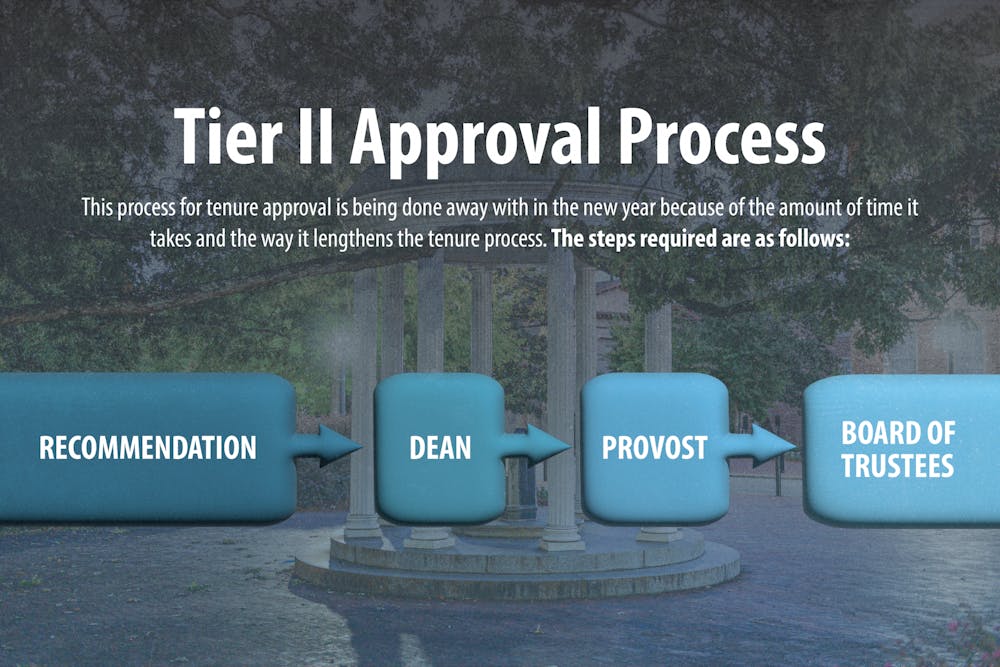The recommendation process begins with department chairpeople. From there, the relevant dean makes a recommendation to a campus-based appointments, promotion and tenure committee. Eventually, this committee makes a recommendation to the provost, who will submit the person’s name and information for review and approval by the Board of Trustees.
The trustees have the final say on awarding tenure to faculty members. The Board consists of a total of 13 members from different branches. Eight members are elected by the UNC System Board of Governors and four are appointed by the North Carolina General Assembly. The student body president serves as an ex-officio member.
Lees' case study
Lees has taught at UNC for over 23 years and was previously at Yale University for 10 years. He said his decision to move to UNC teetered on the basis of his tenure offer.
After teaching for five years at Yale, he was promoted to associate professor with an additional anticipated and extensive process toward tenure instead of receiving a nomination for tenure. Before that process ended, Lees said he had already decided to teach at UNC.
He described Yale’s tenure process as “all hidden, secret and behind closed doors.”
But, at UNC, he said there’s a process with an adherable timeline that is very open and explained.
Some faculty members like Lees feel that maximizing the efficiency of the tenure process and minimizing potential interference should be a top University priority.
"Tenure is one of the most important parts of the academic industry of our country," he said.
BOT and administrative appointments
After a reexamination of the authority of campus leaders, trustees assumed power in January 2022 to approve all Tier II administrative appointments.
Tier II University leaders include senior academic and administrative officers, primarily development, communications and secondary appointments.
To get the day's news and headlines in your inbox each morning, sign up for our email newsletters.
A list of potential Tier II appointments is sent to a subcommittee of the Board every week, Becci Menghini, vice chancellor for human resources and equal opportunity and compliance, said in an October Faculty Executive Committee meeting.
As of October 2022, the Board had approved every Tier II appointment that appeared before them, she said.
“That was put into place in the fall and was a requirement to the Board of Trustees that any Tier II appointments are to be submitted for review and approval prior to making that appointment permanent,” Linc Butler, senior associate vice chancellor for Human Resources and Academic Personnel, said.
Menghini also said in the October meeting that the Tier II approval process was expected to defect from the Board's control by the beginning of 2023.
A University spokesperson said in a statement that this process is not causing any hiring or approval process delays.
"There is no update. The authority to redelegate rests with the Board of Trustees," a spokesperson said.
“We’re hopeful that this is something that will be removed at some point because it makes the process more efficient if we don’t have to delay it by a week, sometimes two weeks, to wait on the Board of Trustees to make those approvals,” Butler said. “So, no news, but we’re still hopeful that at some point that will change in the near future.”
@dailytarheel
university@dailytarheel.com



